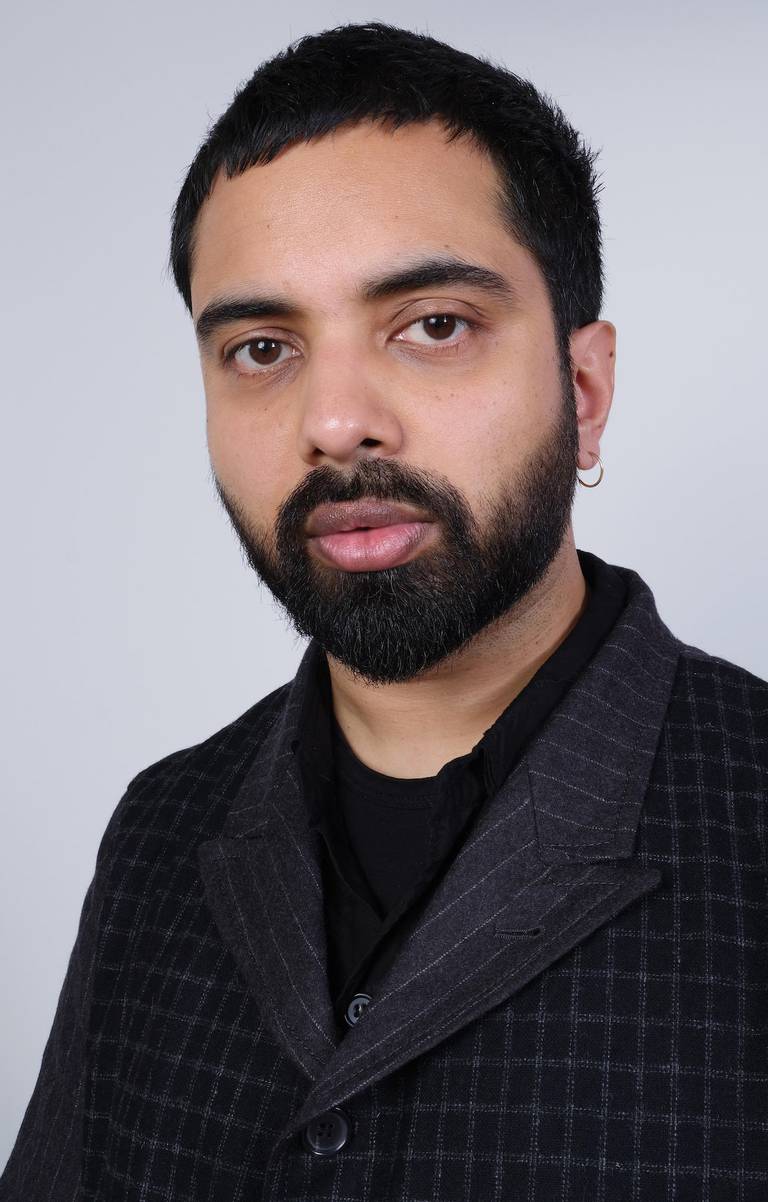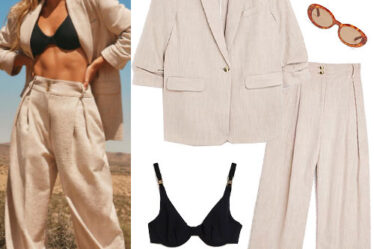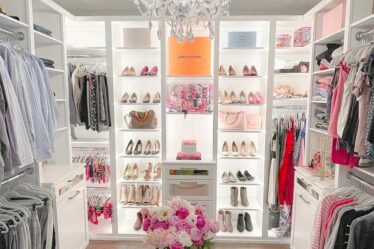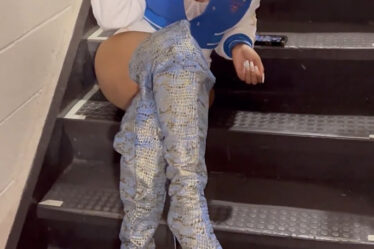
Ronojoy Dam refers to his journey into fashion as “unorthodox.” After graduating from Cambridge University with an English degree, followed by a year of job-hunting, Dam began his career at an advertising agency. He worked on digital strategy for clients like Burberry before landing a role in Nike’s energy brand marketing function in London.
Dam went on to become the first group creative director at Dazed, working across special projects and partnerships for its digital and print publications, as well as its in-house strategy arm. In 2018, he joined the luxury retail platform Farfetch, where he now holds the title of global brand and culture director.
In the latest BoF Careers LinkedIn Live broadcast, Dam shared his learnings on building a career in fashion. Here, BoF Careers shares his key insights and advice on breaking into fashion.
What drew you to working in fashion?
Working in the fashion industry wasn’t my ambition, but [something I] ended up doing, in part by chance. I always had a fascination and obsession with style and its relationship with culture: underground culture, pop culture, and youth culture. […] It was never a specific attraction to the industry of fashion, but in some ways, that served me well. Having a bit of an outsider’s perspective brought in a different way of thinking.
What was your first job and how did you get it?
[It] took a long time. After graduating from Cambridge, I spent over a year trying to find a job […] Interesting jobs [were all] six-month unpaid internships, and I just couldn’t afford that. So I did odd jobs here and there, and a friend got me a weekend job at [department store] Liberty’s, working on the shopfloor in menswear. That searching period was really important because it taught me persistence and resilience. [It] put fire in my belly.
Eventually, I landed a research job for a documentary, and its presenter, Martin Cole, took me under his wing. He saw something in me that I didn’t see in myself, and for that I will always be grateful. [Cole] worked at Bartle Bogle Hegarty (BBH), a creative agency, […] and I was fortunate to get a junior strategist job in a new department they’d set up, [focused on] non-traditional advertising – anything that wasn’t TV or a billboard – so a small thing called “digital.”
I knew nothing about advertising or strategy — it was a real baptism of fire. But it gave me a rigorous education and a grounding in the principles of marketing and communication, which don’t change that much, [so] it really served me well.
How can juniors navigate unpaid work experience and internships?
[My] advice would be to broaden your horizons. There’s a balance between long-term ambition and present-day opportunities. Careers in this field, for me, aren’t always trajectory, and the more interesting ones can [come from] an unorthodox role.
Don’t get too fixated on titles or companies, but have a North Star based around values. [Consider] what excites you, what inspires you and what you enjoy, and look at ways to build experience around that, which might not be directly in the fashion industry, but [can enable you to] build and grow relevant transferable skills.
Don’t get too fixated on titles or companies, but have a North Star based around values.
Think about people that are doing interesting things. […] Peloton is looking to move [into media], LeBron James’ media company [SpringHill] is doing a whole different thing. I wish I had been better informed at the start of my career around those sorts of companies looking more broadly across industries, because I think that’s where the excitement and the disruption are.
What key lessons did you learn as a junior?
While I was thankful to learn about strategy, and for my colleagues, the ad industry just wasn’t for me. I met with a friend who had just left a role at Nike. He put me forward for the energy marketing team, [which was] focused on connecting Nike to the city’s fashion culture communities, including collaborations and innovation launches.
While the role involved industry-leading partners from media, retail and design, Nike is a sportswear company, first and foremost. So, once again, there was an outsider element to it, which I really enjoyed. I think the tension of not being directly in the fashion industry, but operating around it like the protagonist, was always exciting for me.
I [generally] learnt so much working in retail, for Levi’s and Unilever, and on Burberry’s digital strategy, but actually, I learnt as much at parties and nightclubs in London. [For me, it’s] where [you make] connections that lead to incredibly exciting and inspiring things. Nightclubs are like batteries of ideas, and you should try and find your own “idea factory,” wherever that may be — whether online or in the real world.
How can those working outside of fashion move into the industry?
Look for [parallels] and show what you’ve done. Open-mindedness has been most beneficial for me, [as well as] work ethic, humility and clearly demonstrating why a project or a skill is relatable to a company or role.
Even if it’s in a different category or a different type of business, draw the connections. Remove the company name and look at the work you did — [consider] how that can be beneficial and applicable to the role or company you are interested in.
How can a junior employee make themselves stand out?
Don’t be afraid [to introduce yourself]. The worst that’s going to happen [is that] you don’t hear back. But be clear about [what you want to] ask, and use that window to present yourself or to learn something.
Don’t be afraid to introduce yourself. The worst that’s going to happen is that you don’t hear back.
A lot of people will be generous with [their] time. […] There were people who didn’t get back to me, but I would try and find [contacts] and send out emails to people [saying]: “I’m a big fan of your work. I’d love to get 15 minutes to come into your office and learn this,” and bring a CV. That independent thinking and productivity is respected.
[Figure out] what you’re interested in and why. Read books and newspapers, go to museums — have a life and be proud of that life. There is so much generic stuff out there, so being true to yourself and knowing yourself is really helpful […] What I look for in juniors goes back to transferable skills, [as well as] evidence of hunger, humility, open-mindedness and good taste.
Is a fashion degree or formal training necessary?
On a personal level, my English degree didn’t count for anything in my career. […] I spent so long looking for a job, but the skills gained through that experience, and how I applied them in a different context were invaluable.
Some of the most successful, influential people I know in the industry don’t have formal qualifications […] it’s less about formality and more about independent thinking and that idea of self-study. […] I believe [what’s] far more important than any qualification is studying and independent thinking.
How can you grow within an organisation?
Growing with a business is something no one teaches you. You often think about trajectories, or what’s the next role […] versus focusing on the role at hand and the skills that you need.
Opportunities and potential will come from focusing on the things you can control.
You cannot predict what happens next, and the idea of being able to navigate ambiguity or having a growth mindset [rests on] knowing that things can change and you can’t plan for that. Opportunities and potential will come from focusing on the things you can control. A rising tide lifts all boats — that’s my mentality.
What is essential to working in fashion?
I think the most valuable and interesting [is an] obsession with quality of output or quality of life, [and] wanting to push things forward. [Second] is interest — why you want to be in it, [but also] interest in the world outside of fashion. Understanding why you are into things, why you find things interesting, is something you don’t need to be taught — that’s something you can work out for yourself.
Explore related jobs on BoF Careers today:
Channel Innovation Creative, Burberry — London, United Kingdom
Creative Content Producer, Farfetch — London, United Kingdom
Creative Services Intern, Scotch & Soda — Amsterdam, The Netherlands
360 Project Manager, Tiffany & Co. — New York, United States
Creative Content Coordinator, Dôen — Van Nuys, United States
Creative Director, Ounass — Dubai, United Arab Emirates
Disclaimer: This interview has been edited and condensed for clarity.



